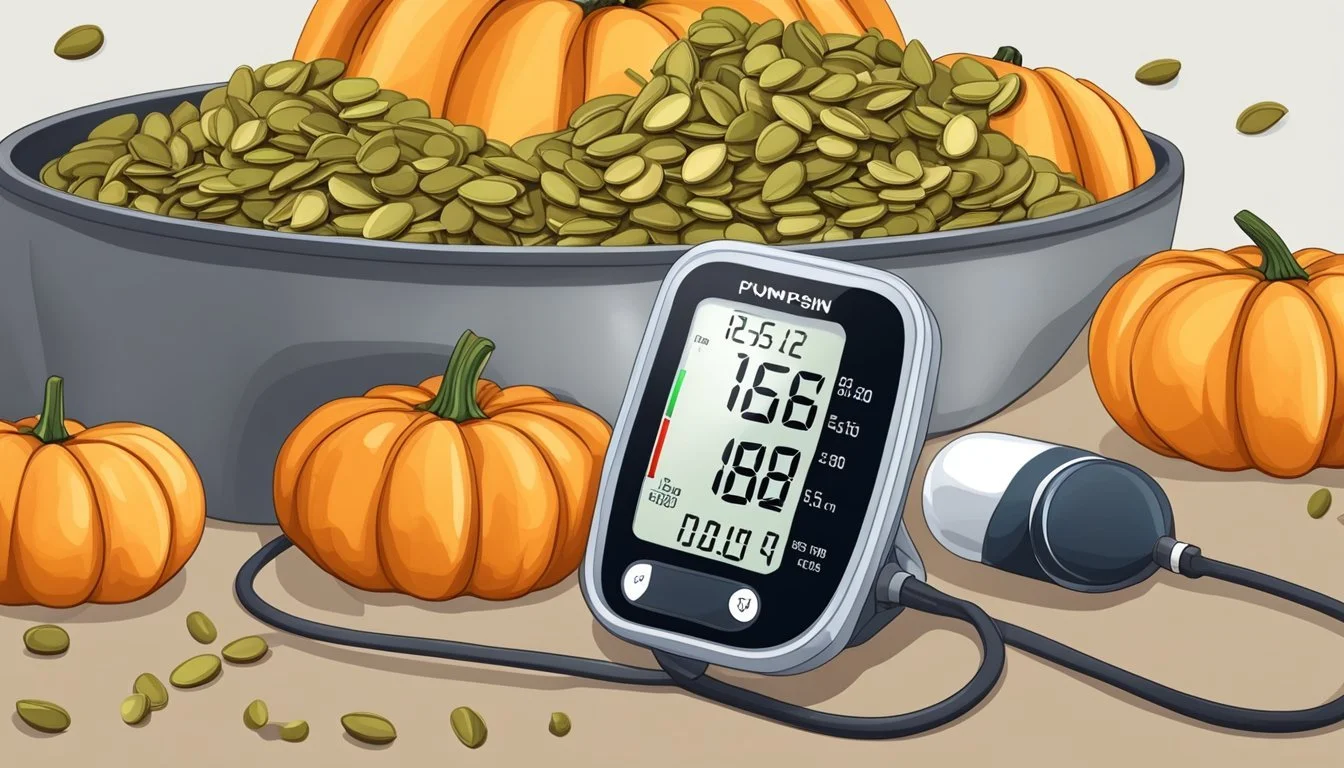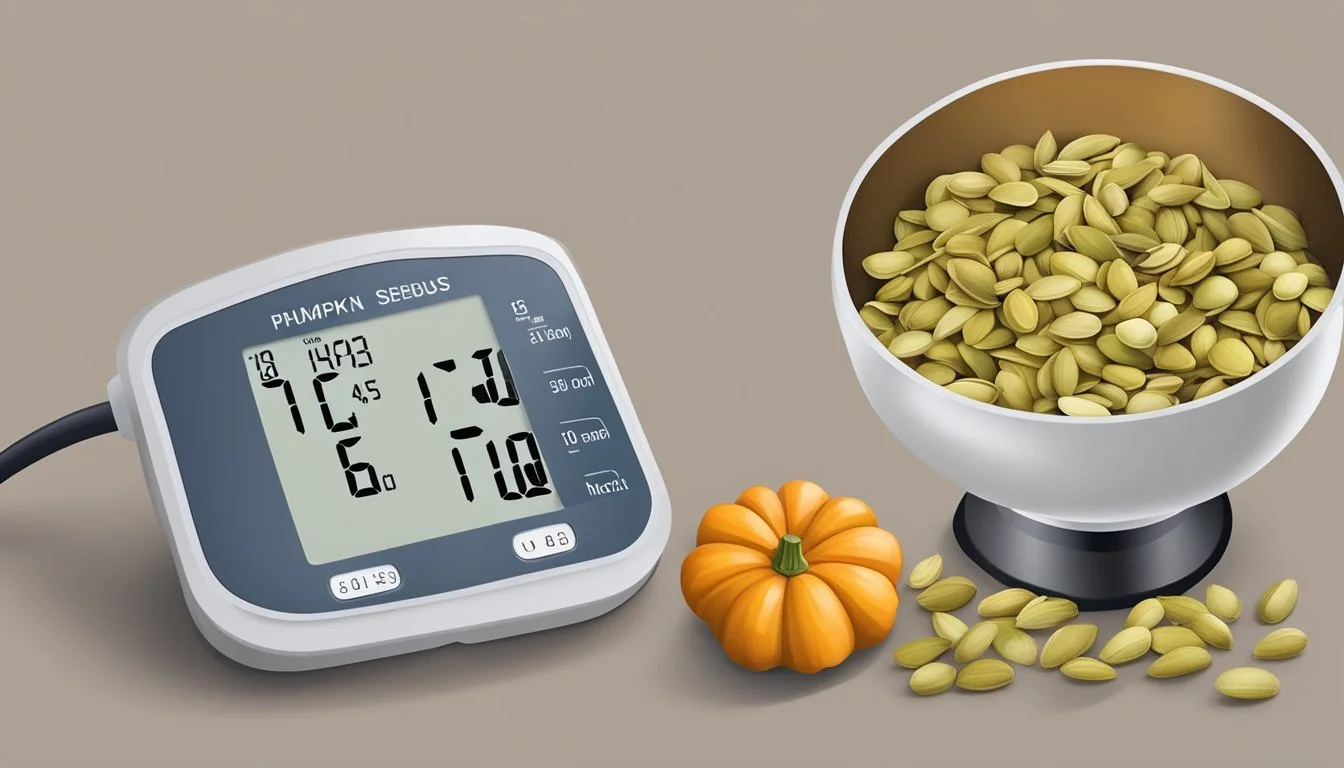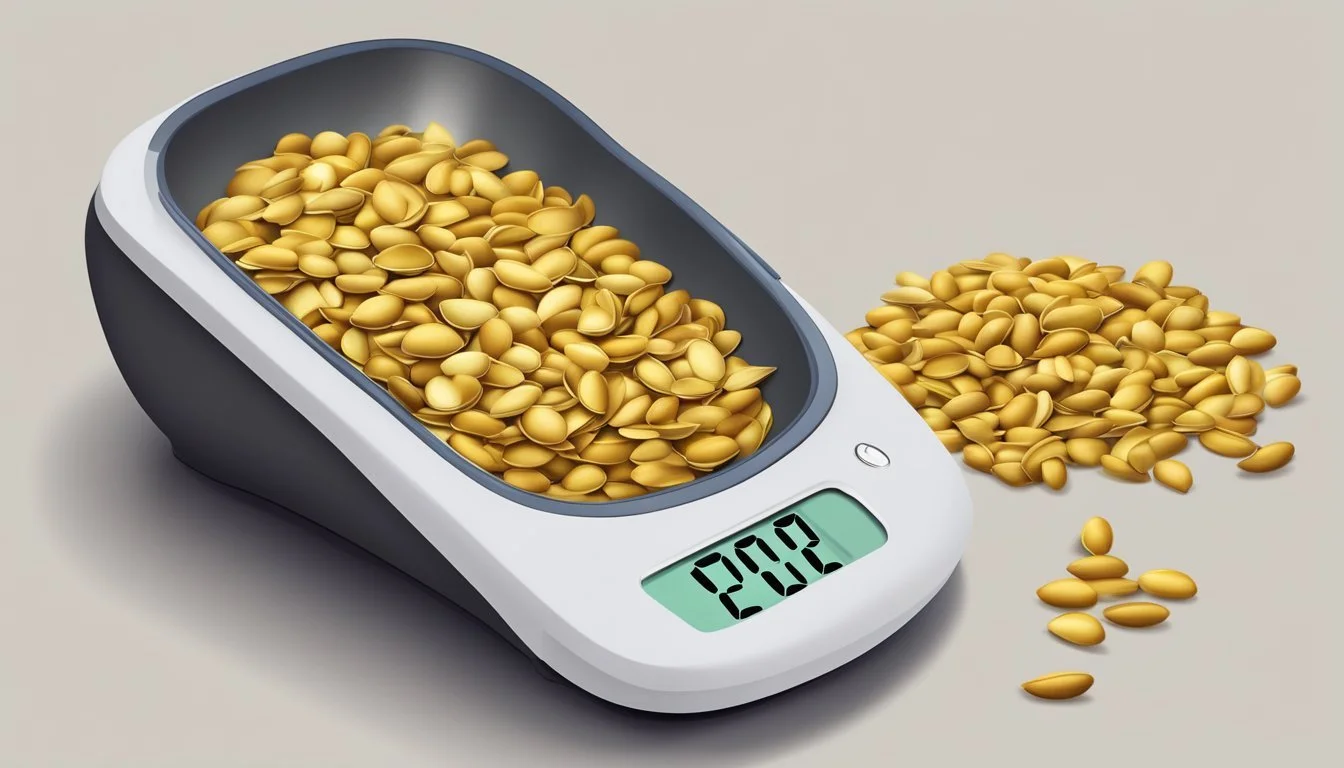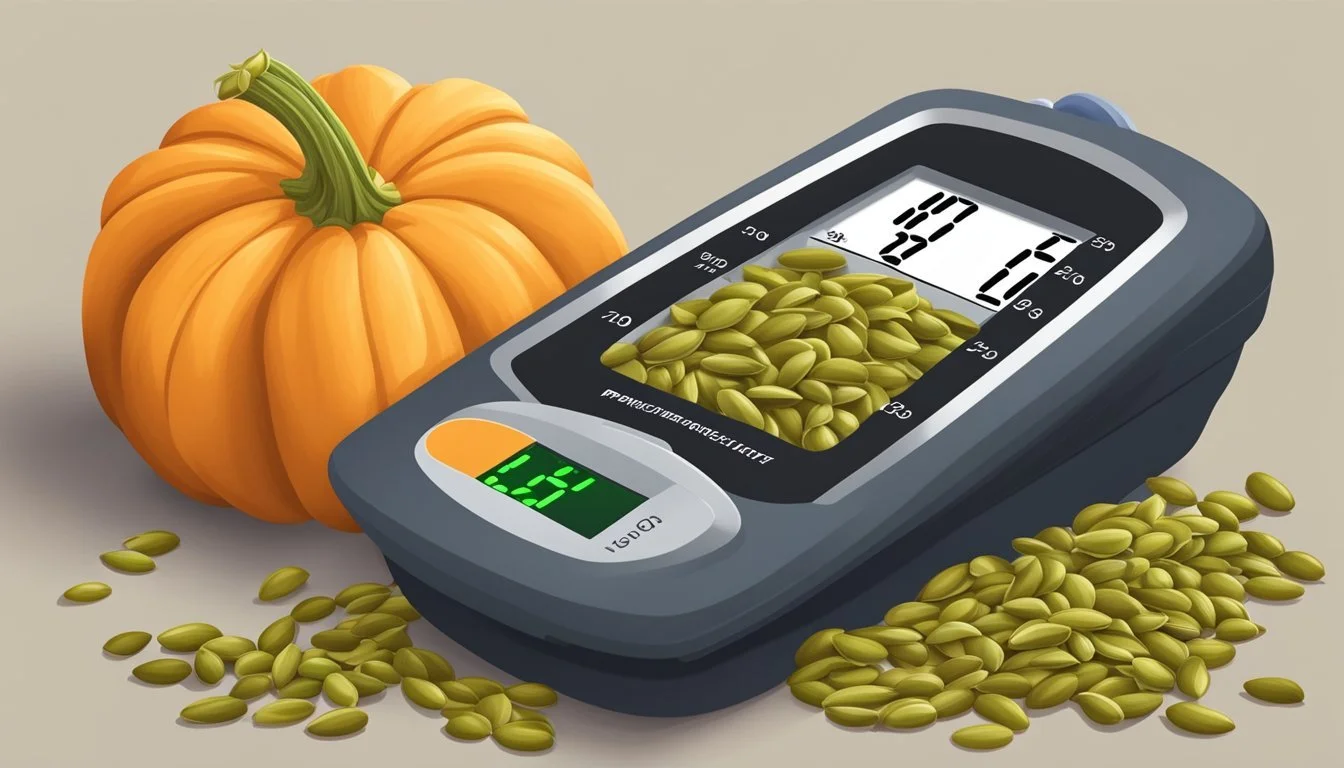Can Eating Pumpkin Seeds Help Lower Blood Pressure?
Uncovering the Benefits
Maintaining healthy blood pressure is critical for cardiovascular health, and diet plays a key role in achieving this balance. Among various dietary recommendations, the consumption of pumpkin seeds has gained attention for their potential benefits on blood pressure. Studies indicate that pumpkin seeds are rich in magnesium, a mineral that's essential for a wide range of bodily functions, including the regulation of blood pressure. The magnesium in pumpkin seeds can help dilate blood vessels, making it easier for the heart to pump blood, and thus, potentially lowering blood pressure.
Additionally, pumpkin seeds contain an amino acid called L-arginine, which can enhance the production of nitric oxide in the body. Nitric oxide acts as a vasodilator, relaxing the arteries and promoting better blood flow. This mechanism further supports the argument that incorporating pumpkin seeds into a diet may be beneficial for those looking to manage their blood pressure. While the existing research provides promising insights, further studies are necessary to fully understand the extent to which pumpkin seeds affect blood pressure and to establish recommended quantities for consumption.
Nutritional Composition of Pumpkin Seeds
Pumpkin seeds, also commonly referred to as pepitas, are small yet rich in a variety of nutrients that are vital for health. They are particularly known for their mineral content, including magnesium, potassium, calcium, iron, zinc, and copper. A single ounce (approximately 28 grams) of pumpkin seeds provides a significant amount of these essential minerals.
Protein & Fats:
Protein: A 1-ounce serving offers about 7 grams of protein.
Fat: They contain 5.5 grams of fat, predominantly healthy unsaturated fats, including beneficial omega-3 fatty acids.
Vitamins & Antioxidants: Pumpkin seeds are a source of various B vitamins and antioxidants, which are crucial for preventing cellular damage and supporting overall health.
Fiber: With about 1.7 grams per ounce, pumpkin seeds are a good source of fiber, which is important for digestive health.
Caloric Content: They are relatively calorie-dense, with 126-160 calories per one-ounce serving, depending on whether they are raw or roasted.
Phytic Acid: Although they contain phytic acid, which can bind minerals and reduce their absorption, pumpkin seeds' overall nutrient profile remains beneficial for health.
By incorporating pumpkin seeds into their diets, individuals can take advantage of these seeds' dense nutritional content, contributing to better health and possibly helping to manage blood pressure levels due to their mineral-rich profile.
Understanding Blood Pressure
Blood pressure refers to the force that circulating blood exerts against the walls of the body's arteries. Measured in millimeters of mercury (mmHg), it's denoted by two numbers: systolic and diastolic pressure. The systolic blood pressure represents the pressure when the heart beats, while the diastolic blood pressure indicates the pressure when the heart rests between beats.
High blood pressure, or hypertension, is a condition where this force remains elevated over time. It can lead to health complications, as it makes the heart work harder to pump blood, which can contribute to the hardening of the arteries and increase the risk of heart disease and stroke.
Risk factors for hypertension include age, genetics, lifestyle factors, and certain medical conditions. Blood pressure categories are as follows:
Normal: Less than 120/80 mmHg
Elevated: 120-129/<80 mmHg
Hypertension Stage 1: 130-139/80-89 mmHg
Hypertension Stage 2: 140 or higher/90 or higher mmHg
Managing blood pressure often involves lifestyle changes, medication, or a combination of both. Monitoring blood pressure regularly is critical for individuals with hypertension or prehypertension, to ensure it stays within a safe range and to prevent complications.
Role of Magnesium in Blood Pressure Regulation
Magnesium is a pivotal mineral in the body's regulation of blood pressure. It plays a key role in numerous bodily functions, particularly those related to the cardiovascular system. One crucial action of magnesium is its ability to relax blood vessels, which can contribute to lower blood pressure.
Individuals with hypertension, or high blood pressure, often exhibit lower levels of magnesium in their bodies. A diet rich in magnesium, therefore, is generally associated with decreased blood pressure levels. The presence of adequate magnesium is essential for the maintenance of proper blood pressure.
To illustrate the impact of magnesium on blood pressure:
Magnesium Effect Result on Blood Pressure Vessel Relaxation Potentially Lower BP Ionic Balance Maintenance Stabilized BP
The National Institutes of Health (NIH) recommend an intake of 310 to 420 milligrams of magnesium daily, depending on age and gender. Dietary sources of magnesium include:
Nuts and seeds (e.g., pumpkin seeds)
Leafy greens (e.g., spinach)
Legumes (e.g., black beans)
Whole grains
Pumpkin seeds, specifically, are an easy and versatile source of magnesium. A quarter cup can provide nearly half the recommended daily intake. Incorporating magnesium-rich foods such as pumpkin seeds into one's diet can be part of an overall approach to managing hypertension. However, those considering a significant change in their diet or dealing with hypertension should consult with healthcare professionals for personalized advice.
Pumpkin Seeds and Heart Health
Pumpkin seeds have gained attention for their potential impact on heart health. These small seeds are a powerhouse of nutrients beneficial for the heart. A diet incorporating pumpkin seeds may have a favorable effect on blood pressure and cholesterol levels, two significant risk factors for heart disease.
High in Magnesium: The presence of magnesium in pumpkin seeds is noteworthy, as it plays a critical role in maintaining a healthy heart rhythm and vascular tone, which can help to regulate blood pressure.
Rich in Omega-3 Fatty Acids: The omega-3 fatty acids found in these seeds contribute to reduced inflammation and have been associated with a lower risk of heart disease. They can also aid in maintaining healthy cholesterol levels.
Antioxidant Effects: Pumpkin seeds are rich in antioxidants, which can help the body fight against oxidative stress, a factor that contributes to heart disease. They may also promote the production of nitric oxide, a molecule that helps to dilate blood vessels, thereby reducing blood pressure.
Fiber Content: When consumed whole, pumpkin seeds provide a good source of dietary fiber. Fiber has been linked to lower levels of LDL ('bad') cholesterol and overall improved heart health.
Here is a glance at the potential benefits of pumpkin seeds:
Nutrient Benefit for Heart Health Magnesium May help regulate blood pressure Omega-3 Fatty Acids Can reduce inflammation and manage cholesterol levels Antioxidants Support in reducing oxidative stress Fiber Aids in lowering LDL cholesterol levels
In summary, incorporating pumpkin seeds into one's diet can support heart health in multiple ways. However, they should be a part of a balanced diet and a healthy lifestyle to achieve the best results for heart health.
Potential Benefits for Hypertension Management
Research indicates that pumpkin seeds may offer multiple benefits for managing high blood pressure, also known as hypertension. These seeds are a rich source of essential nutrients that play a role in cardiovascular health.
Magnesium: Pumpkin seeds are high in magnesium, a mineral that is critical for blood pressure regulation. Adequate magnesium intake is associated with lower blood pressure levels, as it helps to relax blood vessels, thereby facilitating improved blood flow.
Potassium: They also contain potassium, which can help balance the effects of sodium and reduce strain on the cardiovascular system.
Omega-3 fatty acids: The presence of omega-3 fatty acids in pumpkin seeds contributes to their anti-inflammatory properties. Inflammation is a contributing factor in hypertension, and omega-3s can aid in reducing it.
Nitric oxide production: Pumpkin seeds can promote the production of nitric oxide, a natural vasodilator that helps to lower blood pressure by enabling blood vessels to expand.
Fiber content: With a good fiber content, pumpkin seeds can assist in maintaining a healthy blood pressure. Dietary fibers have been shown to help manage hypertension.
Aldosterone influence: Nutrients found in pumpkin seeds may potentially affect aldosterone, a hormone that regulates sodium and potassium levels, thus influencing blood pressure.
Including pumpkin seeds in a well-balanced diet could be beneficial for individuals looking to manage their high blood pressure. However, it is always recommended to seek advice from a healthcare professional to integrate such dietary changes effectively.
Incorporating Pumpkin Seeds into Your Diet
Adding pumpkin seeds, also known as pepitas, to one’s diet is a simple and delicious way to potentially aid in lowering blood pressure, thanks to their magnesium content. Here are various ways to integrate them into meals:
On Toast: Start the day with a satisfying crunch by sprinkling a handful of seeds onto avocado toast, perhaps with a bit of lemon juice to enhance iron absorption.
In Yogurt: For a nutrient-rich snack, stir some roasted pumpkin seeds into Greek yogurt. The combination offers both protein and texture.
Salad Topping: Give salads an upgrade by tossing in pumpkin seeds for extra crunch and nutrients. Their nutty flavor complements both leafy greens and grain-based salads.
Soups and Stews: Embellish soups and stews with a garnish of pumpkin seeds just before serving for a contrasting texture.
Roasting Pumpkin Seeds:
Preheat oven to 350°F (175°C).
Clean seeds, pat dry, then toss with olive oil and a little salt.
Spread seeds in a single layer on a baking sheet.
Roast for about 10-15 minutes, stirring occasionally, until golden brown.
Pumpkin Seed Oil: Though not as widely available, pumpkin seed oil can be drizzled over finished dishes for a concentrated dose of flavor.
Here’s a quick reference for incorporating pumpkin seeds into your diet:
Meal Time Suggestion Breakfast On toast or mixed into yogurt Lunch As a crunchy salad topping Dinner Stirred into soups or atop other dishes Snack A handful of roasted pumpkin seeds
Remember, while pumpkin seeds are a nutritious addition to one’s diet, they should be consumed in moderation, incorporated into a balanced diet, and not relied upon solely for managing blood pressure.
Other Health Benefits of Pumpkin Seeds
Pumpkin seeds are recognized for a variety of health benefits beyond blood pressure management. They are densely packed with nutrients beneficial for overall health.
Antioxidants in pumpkin seeds, such as vitamin E and carotenoids, are known to reduce inflammation and protect cells from harmful free radicals. This is particularly beneficial in reducing the risk of chronic diseases. Furthermore, their high content of magnesium supports heart health and maintains bone density.
Pumpkin seeds have a positive impact on prostate health. Studies suggest that compounds in pumpkin seeds may alleviate symptoms of benign prostatic hyperplasia (BPH), a condition that causes the prostate gland to enlarge, leading to difficulties with urination. Furthermore, there is evidence indicating that pumpkin seeds might play a supportive role in preventing prostate cancer.
Breast cancer risk might also be influenced by pumpkin seed consumption. They contain phytoestrogens, which are plant compounds that could have a role in preventing breast cancer, according to some research.
Those with overactive bladder could find relief by incorporating pumpkin seeds into their diet. The seeds' ability to strengthen pelvic floor muscles can help alleviate bladder discomfort.
Diets rich in pumpkin seeds have been associated with better control of type 2 diabetes. They contain high amounts of magnesium, a mineral involved in glucose metabolism.
The tryptophan in pumpkin seeds is a precursor to serotonin, which can later convert to melatonin, the hormone that regulates sleep. Thus, consuming them might improve the quality of sleep, especially for individuals with insomnia.
The presence of alpha-linolenic acid (ALA), a type of omega-3 fatty acid in pumpkin seeds, is instrumental in reducing inflammation and fostering overall health.
Overall, while further research is always warranted, the array of nutrients in pumpkin seeds can support various aspects of health alongside a balanced diet and healthy lifestyle choices.
Comparative Analysis of Seeds and Nuts
Seeds and nuts are integral components of a nutritious diet due to their rich content of vitamins, minerals, and healthy fats. Pumpkin seeds, often referred to as pepitas, are particularly noted for their magnesium content, which is beneficial for blood pressure regulation. A comprehensive analysis highlights the comparative nutritional values among various seeds and nuts including almonds, pistachios, walnuts, and flax seeds.
Almonds are praised for their high levels of vitamin E, which aids in maintaining heart health. Pistachios stand out with their lower calorie count while also offering a substantial amount of potassium. Walnuts, on the other hand, are a significant source of alpha-linolenic acid, an omega-3 fatty acid important for cardiovascular health.
Contrastingly, flax seeds are esteemed for their lignans and omega-3 fatty acids, potentially aiding in reducing hypertension. Including a variety of these can provide a balanced intake of nutrients instrumental for lowering blood pressure.
Nut/Seed Notable Nutrients Potential Benefits for Blood Pressure Pumpkin Seeds Magnesium May help regulate blood pressure Almonds Vitamin E, Magnesium Supports heart health, antioxidant action Pistachios Potassium, Phytosterols May lower vascular constriction Walnuts Alpha-linolenic acid (Omega-3) May improve endothelial function Flax Seeds Omega-3 fatty acids, Lignans May reduce hypertension
It's essential for consumers to understand the specific nutritional profiles of each and how they can synergistically contribute to health. When focusing on blood pressure, the magnesium in seeds like pumpkin seeds and flax seeds can be particularly beneficial. However, diets must be varied and balanced to ensure the body receives a wide range of nutrients for overall health.
Considerations for Seed Consumption
When incorporating pumpkin seeds into the diet for blood pressure management, one must be conscious of the nutritional components and potential dietary implications. Pumpkin seeds contain a notable amount of magnesium, which plays a role in supporting healthy blood pressure levels. However, attention should be given to their overall calorie content, as maintaining a balanced caloric intake is vital for heart health.
Sodium: Pumpkin seeds are naturally low in sodium, making them a favorable option for those monitoring their salt intake. Nonetheless, store-bought varieties, especially those that are pre-salted, can be high in sodium which may counteract their blood pressure-lowering potential.
Fat Content: They are rich in unsaturated fats, specifically omega-3 and omega-6 fatty acids, beneficial to the cardiovascular system. In contrast, they contain minimal saturated fats, which is advantageous for maintaining heart health.
In terms of carbohydrate content, pumpkin seeds are relatively low, but rich in dietary fiber, which aids in satiety and digestive health. Their phytic acid content, while sometimes considered an "anti-nutrient," is found to have protective antioxidant properties.
Table: Nutritional Profile of Pumpkin Seeds per 1 oz (28g)
Nutrient Amount Calories ~160 Carbohydrates ~15g Dietary Fiber ~5g Fats (Total) ~6g Unsaturated Fats High Saturated Fats Low
Those with allergies should consume pumpkin seeds with caution, as seed allergies can be common. Consumers with allergies to seeds are advised to consult with a healthcare provider before adding pumpkin seeds to their diet. Furthermore, unpackaged seeds should be avoided by individuals with food allergies due to potential cross-contamination risks.
It is prudent to incorporate pumpkin seeds in their natural, unprocessed form to reap the optimum benefits, while also being aware of portion sizes to prevent excessive intake of calories and fat.
Adjunctive Foods to Support Blood Pressure
To manage blood pressure effectively, incorporating certain foods into one's diet can be beneficial. These foods are rich in key nutrients like magnesium, potassium, calcium, and omega-3 fatty acids.
Magnesium: Pumpkin seeds are an excellent source of magnesium, a mineral vital for blood pressure regulation. A quarter cup of pumpkin seeds could contribute to approximately 42% of the daily recommended intake of magnesium.
Potassium: Foods high in potassium, such as spinach, citrus fruits, and berries, help to balance the amount of sodium in the body, thereby reducing blood pressure levels. A potassium-rich diet dilates blood vessels and promotes proper heart function.
Calcium: Essential for muscle function, calcium plays a role in smooth muscle relaxation and contraction in the arteries. Leafy green vegetables, like spinach, contain appreciable amounts of calcium, which aid in maintaining optimal blood pressure.
Omega-3 fatty acids: These fatty acids are known for their anti-inflammatory properties and their ability to improve heart health. Foods such as flaxseeds and fish are good sources of omega-3s, which can help reduce blood pressure.
Other supportive foods include:
Vitamin C: Citrus fruits, which are high in vitamin C, can assist in lowering blood pressure.
Ginger: Recognized for its medicinal properties, ginger may help in muscle relaxation and blood vessel dilation.
Garlic: This potent ingredient has been shown to have a significant impact on reducing blood pressure levels through its ability to increase nitric oxide production.
Incorporating a balanced mix of these nutrient-rich foods can help manage and support healthy blood pressure levels.
Summary and Recommendations
Pumpkin seeds are a nutritious snack rich in magnesium, which research suggests plays a role in maintaining healthy blood pressure levels. A standard one-ounce serving of pumpkin seeds offers a significant amount of this essential mineral.
Key Nutritional Aspects of Pumpkin Seeds:
Magnesium: Contributes to vascular relaxation and blood pressure regulation.
Protein: Valuable source for muscle health and repair.
Dietary Fiber: Assists in digestive health and may impact heart disease and obesity.
Lignans: Phytochemicals that may support bone health and influence male fertility.
In addition to their magnesium content, pumpkin seeds contain antioxidants and other nutrients that benefit overall health. These elements collectively contribute to the cardiac benefits associated with pumpkin seeds, influencing both systolic and diastolic blood pressure.
While incorporating pumpkin seeds into one's diet can be advantageous, individuals should be mindful of portion sizes due to the seeds' calorie content. They can be consumed raw, roasted, or added to salads, yogurts, and other dishes for textural contrast and flavor enhancement.
Recommendations for Consumption:
Adults: Consider a small handful (approximately one ounce) of pumpkin seeds as part of a daily diet.
Serving Suggestions: Add to salads, blend into smoothies, or eat as a standalone snack.
For those managing hypertension or concerned about cardiovascular health, the inclusion of pumpkin seeds as one component of a diversified diet may offer benefits. However, it should not replace medical therapy but complement it. As always, individuals should consult healthcare providers before making significant dietary changes.







